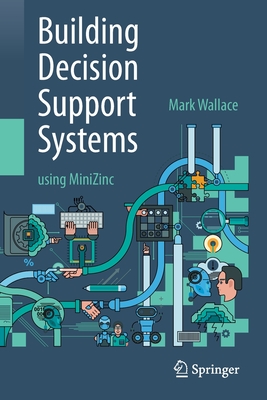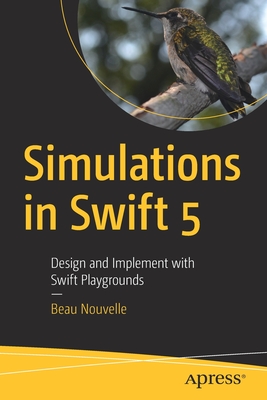Building Decision Support Systems: Using Minizinc
暫譯: 建立決策支援系統:使用 Minizinc
Wallace, Mark
- 出版商: Springer
- 出版日期: 2020-04-24
- 售價: $3,190
- 貴賓價: 9.8 折 $3,126
- 語言: 英文
- 頁數: 224
- 裝訂: Quality Paper - also called trade paper
- ISBN: 303041731X
- ISBN-13: 9783030417314
-
相關分類:
Machine Learning
海外代購書籍(需單獨結帳)
相關主題
商品描述
This book introduces readers to the principles of intelligent decision support systems (IDSS) and how to build them with MiniZinc, a free, open-source constraint programming language. Managing an IDSS project requires an understanding of the system's design and behaviour. The book enables readers to appreciate what "combinatorial" optimisation problems are, and how modelling a problem provides the basis for solving it. It also presents the main algorithms for tackling decision support problems, discusses their strengths and weaknesses, and explores ways of achieving the necessary scalability when problems become big. Moreover, to support the learning process it allows readers to try out the ideas described in the text on model applications and puzzles.
The book highlights the potential benefits of deploying an IDSS. It enables users to recognise the key risks involved and identify which techniques can be applied to minimise them, and to understand the decision support technology sufficiently in order to manage or monitor an IDSS project. It also helps readers distinguish between good sense and mere jargon when dealing with anyone involved in an IDSS project, from sales personnel to software implementers. As such it especially appeals to graduate students and advanced professionals who need to learn how to build an IDSS and to tackle the problems on the way.商品描述(中文翻譯)
本書向讀者介紹智能決策支持系統(IDSS)的原則,以及如何使用 MiniZinc 這個免費的開源約束編程語言來構建它們。管理一個 IDSS 項目需要理解系統的設計和行為。本書使讀者能夠理解什麼是「組合」優化問題,以及如何通過建模問題來為解決問題奠定基礎。它還介紹了解決決策支持問題的主要算法,討論它們的優缺點,並探索在問題變得龐大時實現必要可擴展性的方法。此外,為了支持學習過程,本書允許讀者在模型應用和謎題上嘗試文本中描述的想法。
本書強調部署 IDSS 的潛在好處。它使使用者能夠識別涉及的主要風險,並確定可以應用哪些技術來最小化這些風險,並充分理解決策支持技術,以便管理或監控 IDSS 項目。它還幫助讀者在與任何參與 IDSS 項目的人(從銷售人員到軟體實施者)打交道時區分良好的常識和單純的行話。因此,本書特別吸引需要學習如何構建 IDSS 並解決過程中問題的研究生和高級專業人士。
作者簡介
Mark Wallace is a leader in discrete optimisation at the Faculty of Information Technology at Monash University, Australia. He spent 21 years at the UK computer manufacturer ICL, moving from global marketing, to development, and finally to research. At Imperial College London he led the Constraint Programming team, whose software was purchased by Cisco Systems. In Australia, he founded the company Opturion, to productise and deploy a constraint modelling system now used in Australia's leading logistics companies. His research tackles the integration of multiple optimisation techniques and algorithms and their application to solving complex resource planning and scheduling problems.
作者簡介(中文翻譯)
馬克·華萊士(Mark Wallace)是澳洲莫納什大學(Monash University)資訊科技學院的離散優化領域領導者。他在英國電腦製造商ICL工作了21年,從全球行銷轉到開發,最後進入研究。在倫敦帝國學院(Imperial College London),他領導了約束程式設計(Constraint Programming)團隊,其軟體被思科系統(Cisco Systems)收購。在澳洲,他創立了Opturion公司,將一個約束建模系統商品化並部署,該系統目前被澳洲領先的物流公司使用。他的研究專注於多種優化技術和演算法的整合,以及它們在解決複雜資源規劃和排程問題中的應用。











